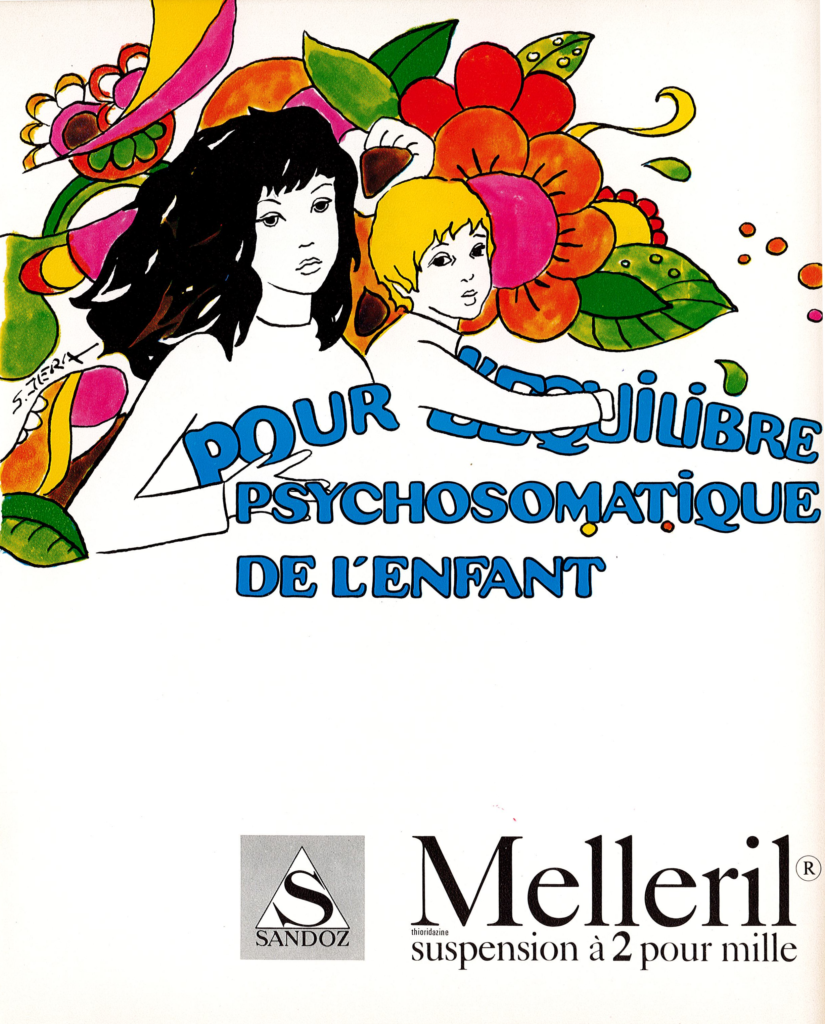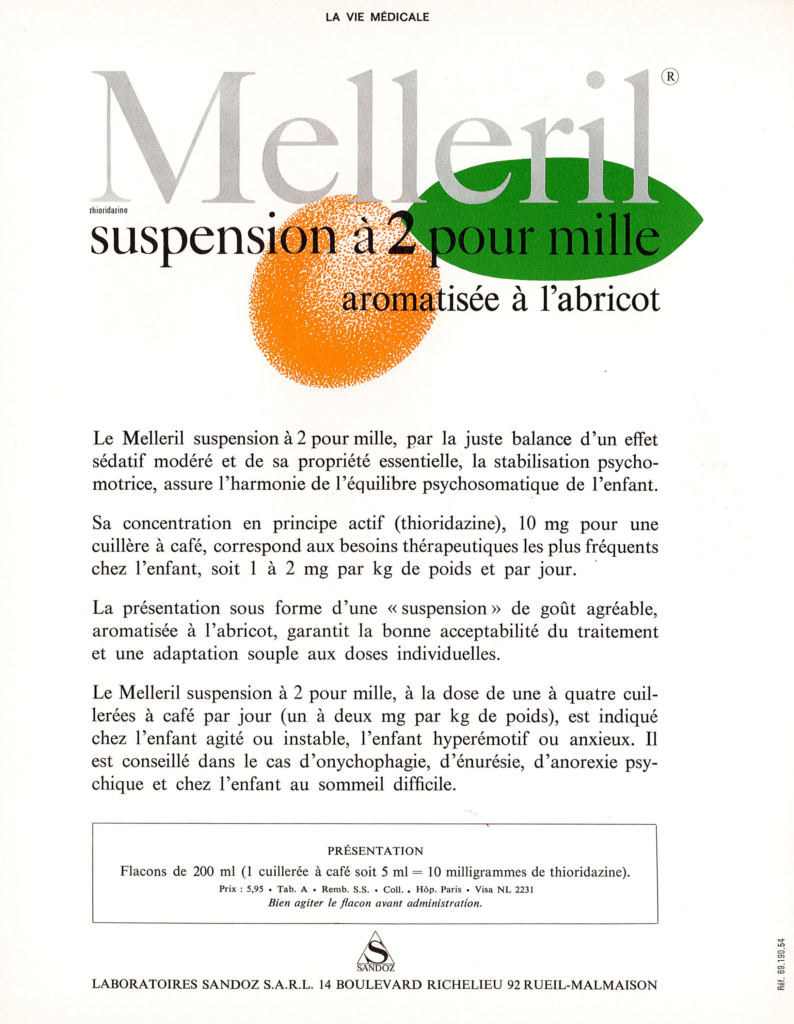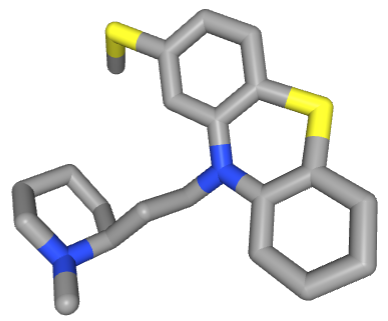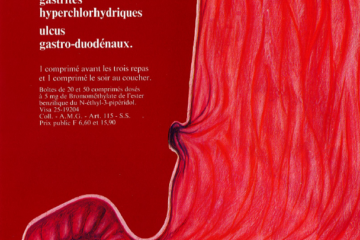Thioridazine, the active principle of the sirup for children Melleril® (an apricot-flavored oral suspension), is an old phenothiazine derivative used for a long time for its sedative effects. At a low dose, the drug was indicated for agitated or unstable children, overemotional or suffering from mild anxiety or psychological anorexia. Melleril was used as a tranquillizer to reduce behavioral disorders in children. It was recommended to treat a range of mental and emotional disturbances characterized by anxiety, tension and agitation.
But otherwise, thioridazine is a neuroleptic agent. The drug has been largely used (until 2005) as an antipsychotic agent in adults with chronic schizophrenia and psychosis. It functions as an antagonist of dopamine D2 receptors. The drug was withdrawn from the market worldwide in 2005.

Interestingly, it has been demonstrated that thioridazine can also exert anticancer effects. Not only the drug can render multidrug-resistant (MDR) cancer cells susceptible to cytotoxic chemotherapy, but in addition it reduces the proliferation and induces cell death of diverse cancer cells, including those derived from brain, lung, colon, and breast cancers.
A recent study even reported that the use of this antipsychotic drug was inversely associated with the risk of gastric cancer. Many studies are engaged to evaluate the potential repositioning of this antipsychotic phenothiazine derivative as an anticancer agent, notably for the treatment of breast and prostate cancers, with the objective to target cancer stem cells. These aggressive tumor cells were found to be sensitive to thioridazine, suggesting that the survival and proliferation of these tumor cells rely, at least partially, on the activity of the dopamine D2 receptor.




